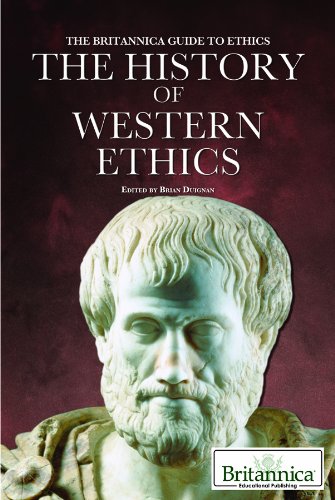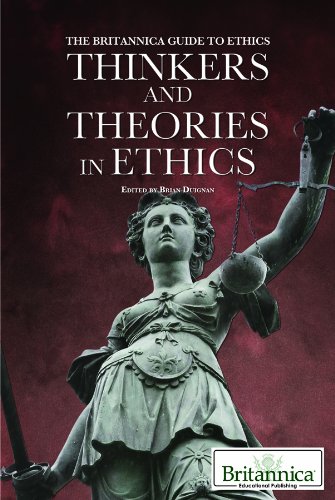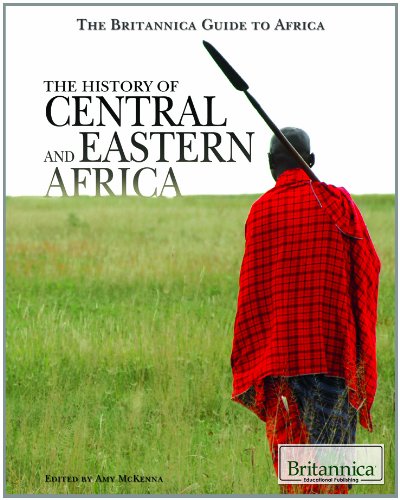-
The History of Western Ethics
Brian Duignan
Library Binding (Rosen Education Service, Jan. 15, 2011)Ethics is the business of moral philosophy by which humans try to determine what behaviors are right and wrong; good and bad; noble and ignoble. Each person strives for rectitude as they understand it, while working within the accepted values of a larger group dynamic. The moral view of the larger group is developed and refined within a state of flux, and new circumstances are constantly arising that defy individual consciences and compel each individual to reexamine how he or she applies ethical principles in everyday life. This absorbing volume looks at the development of the three major fields of Western ethics over time, while providing insightful cross-cultural comparisons between ancient moral philosophies of societies across the globe.
-
Thinkers and Theories in Ethics
Brian Duignan
Library Binding (Rosen Education Service, Jan. 15, 2011)Perspectives on moral behavior and ethical action are wide-ranging, and often involve divergent standards and approaches that produce ambiguous conclusionsyet we still arrive at universals. Echoes of Enlightenment and ancient Greek thinking resonate through the present day, and various thinkers have adapted the same ideas to respond to emerging social, cultural, political, and technological developments and new moral dilemmas. This volume surveys the major theories that form the basis of ethical thought. Sidebars and detailed images shed light on the vacillating world of ethics, and highlight the individuals whose seminal works confront some of our most fundamental human concerns.
-
The History of Southern Africa
Amy McKenna
Library Binding (Rosen Education Service, Jan. 15, 2011)The history of southern Africa is marked by both the convergence and divergence of diverse cultures. Clashes between European settlers and indigenous peoples throughout this section of the continent were common. At stake were rights to a wealth of natural resources and, as time went by, independence. This volume surveys the often volatile histories of each country in the region and introduces readers to the diversity of peoples that are an important element of each countrys past and future.
-
Christianity
Matt Stefon
Library Binding (Rosen Education Service, Aug. 15, 2011)Arguably one the greatest influences on the Western world, if not the world as a whole, the Christian faith can be described as a cultural and religious colossus for the tremendous effect it has had on the development of civilization as we know it. Although centered around the figure of Jesus of Nazareth, Christianity evolved rapidly, leading to the creation of various sects and traditions that have come to represent different peoples around the world. This compelling tome examines the philosophy, history, dogma, and socio-cultural aspects of a religion that has been found at the heart of both conflict and peace. Sidebars brim with interesting facts and stories that support the main narrative.
-
The History of Central and Eastern Africa
Amy McKenna
Library Binding (Rosen Education Service, Jan. 15, 2011)The abundance of natural resources endemic to central and eastern Africa has been critical in shaping the trajectory of the civilizations that have made the region their home. Like the rest of the continent, however, the areas riches also made them vulnerable to slave traders and colonizers who left a devastating legacy in their wake. This engrossing selection documents the history of a region that witnessed some of the worlds most brutal and destructive conflicts as well as the birth of several groups who continue to fight for justice and peace in the region.
-
Weapons of Mass Destruction
Robert Curley
Hardcover (Rosen Education Service, Dec. 15, 2011)With their potential to wreak massive or total devastation, nuclear, chemical, and biological weapons have dramatically escalated the stakes of war. As stockpiles of such weapons continue to grow around the world, especially in the years since the Second World War, countries have recognized the need to check their powers. This detailed volume examines various weapons of mass destruction and the science behind them, their effects on conflict, and the various arms control treaties and agreements that have been introduced to help curb the possibility of overwhelming loss.
-
War on Land
Robert Curley
Hardcover (Rosen Education Service, Dec. 15, 2011)Long before they took to the sea and air, warring factions engaged in land-based conflicts that involved close-range combat with rudimentary defenses and weapons. As civilizations have advanced, so too have their military strategies, tactics, and weaponry. Eventually this led to the development of sophisticated land fortifications, arms, artillery, and missile systems in use today by ground troops. This insightful volume examines the evolution of warfare on land around the world, as well as the impact of new technologies on the nature of war.
-
Islamic Art and Architecture
Peter Osier
Library Binding (Britannica Educational Pub, Aug. 15, 2017)Presents an overview of Islamic art and architecture, from the mosques of the early period, to the decorative arts and buildings of the middle period, to the Ottoman and Mughal art leading to the building of the Taj Mahal.
-
The History of Western Africa
Amy McKenna
Library Binding (Rosen Education Service, Jan. 15, 2011)From its ancient kingdoms to the independent post-colonial states that make up the region today, western Africa has transformed dramatically over the centuries. Economically lucrative for European slave traders and later for their colonial successors, the territories along Africas Atlantic coast were forced to overcome great adversity before achieving autonomy. This volume surveys the history of the many nations of western Africa where vestiges of its celebrated past are still visible in cities like Timbuktu and where its diverse peoples continue to navigate a path towards a more stable future.
-
The History of Northern Africa
Amy Mckenna
Library Binding (Britannica Educational Pub, Jan. 15, 2011)Examines the history of northern Africa, including an overview of each of the countries that comprise that area of the continent.
-
Judaism
Matt Stefon
Library Binding (Rosen Education Service, Aug. 15, 2011)With a Diaspora that has spread to nearly every continent, the Judaic tradition has been an integral part of the history and development of societies the world over. As the oldest of the worlds three major monotheistic religions, Judaism has survived centuries of trial and transformation, all while consistently maintaining a considerable following and identity. This comprehensive volume examines the robust spiritual and cultural heritage of this rich and complex faith as well as the lives of past and present figures whose leadership and intellectual contributions have shaped its development.
-
The Islamic World to 1041
Ariana Wolff
Library Binding (Britannica Educational Pub, Aug. 15, 2017)Explores the political, cultural, theological, and geographical transformations that have shaped the Islamic world from the eleventh century to today.